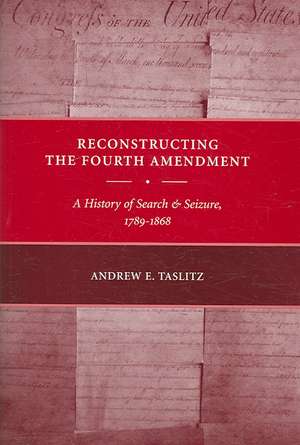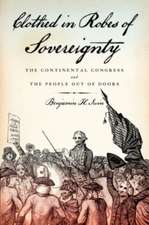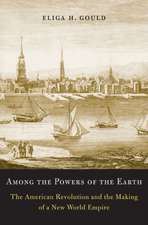Reconstructing the Fourth Amendment – A History of Search and Seizure, 1789–1868
Autor Andrew E. Taslitzen Limba Engleză Hardback – 30 sep 2006
| Toate formatele și edițiile | Preț | Express |
|---|---|---|
| Paperback (1) | 246.48 lei 43-57 zile | |
| MI – New York University – 28 feb 2009 | 246.48 lei 43-57 zile | |
| Hardback (1) | 530.74 lei 43-57 zile | |
| Wiley – 30 sep 2006 | 530.74 lei 43-57 zile |
Preț: 530.74 lei
Preț vechi: 689.28 lei
-23% Nou
Puncte Express: 796
Preț estimativ în valută:
101.55€ • 106.32$ • 84.03£
101.55€ • 106.32$ • 84.03£
Carte tipărită la comandă
Livrare economică 07-21 aprilie
Preluare comenzi: 021 569.72.76
Specificații
ISBN-13: 9780814782637
ISBN-10: 0814782639
Pagini: 370
Dimensiuni: 152 x 229 x 15 mm
Greutate: 0.64 kg
Editura: Wiley
ISBN-10: 0814782639
Pagini: 370
Dimensiuni: 152 x 229 x 15 mm
Greutate: 0.64 kg
Editura: Wiley
Recenzii
"An exciting and original work of history
.[A] bracing contribution to the somewhat dormant field of constitutional history
.that will be of interest to any historian of the Constitution. The book's main accomplishment is that it combines contemporary and historical arguments without slighting either, while providing important new evidence and insight into each."
Journal of American HistoryInsightful in its approach to the Fourth Amendment, not only in terms of the law itself, but what is searched and seized, who particularly is subject to search and seizure, and what abuses led to broadening, thus capturing the full rich detail of the Fourth Amendment .Taslitz shows us in thorough fashion that we would be wise to learn from the past as we address the problems facing our society.
Law and Politics Book Review "Reconstructing the Fourth Amendment is a remarkable scholarly accomplishment. It presents one of the most radical challenges to standard constitutional thinking--not just about searches and seizures but also about the interpretation of the Fourteenth Amendment as a protection of individual rights--in recent literature. Andrew Taslitz stakes out a radical and compelling position on a pressing contemporary issue--the protection of individual privacy against government invasion--and does so on impeccably researched and intellectually conservative grounds. It is a must read"
H. Jefferson Powell, author of A Community Built on Words: The Constitution in History and Politics "Taslitz's analysis provides a unique vision of the Fourth Amendment's purpose: to tame political violence from governmental officials, while forcing officials to treat each individual with respect and dignity. Taslitz's research on the search and seizure practices of Southern states during Reconstruction is illuminating and strengthens his thesis that respect for the individual lies at the core of the Fourth Amendment."
Tracey Maclin, Professor of Law, Boston University School of Law "Fourth Amendment scholarship has hitherto emphasized the amendment's background and gestation, i.e., the period before its inception in 1789. Taslitz, however, has removed a critical gap in that scholarship by illuminating the amendment's development after 1789, through the ante-bellum and Reconstruction periods, until 1868. Taslitz breaks new ground by exploring the Fourth Amendment's connections with political violence and slavery. He introduces readers to the interpretative diversity of and among scholars who debate the amendment's original and current contents."
William Cuddihy, author of The Fourth Amendment: Origins and Original Meaning, 602-1791
Journal of American HistoryInsightful in its approach to the Fourth Amendment, not only in terms of the law itself, but what is searched and seized, who particularly is subject to search and seizure, and what abuses led to broadening, thus capturing the full rich detail of the Fourth Amendment .Taslitz shows us in thorough fashion that we would be wise to learn from the past as we address the problems facing our society.
Law and Politics Book Review "Reconstructing the Fourth Amendment is a remarkable scholarly accomplishment. It presents one of the most radical challenges to standard constitutional thinking--not just about searches and seizures but also about the interpretation of the Fourteenth Amendment as a protection of individual rights--in recent literature. Andrew Taslitz stakes out a radical and compelling position on a pressing contemporary issue--the protection of individual privacy against government invasion--and does so on impeccably researched and intellectually conservative grounds. It is a must read"
H. Jefferson Powell, author of A Community Built on Words: The Constitution in History and Politics "Taslitz's analysis provides a unique vision of the Fourth Amendment's purpose: to tame political violence from governmental officials, while forcing officials to treat each individual with respect and dignity. Taslitz's research on the search and seizure practices of Southern states during Reconstruction is illuminating and strengthens his thesis that respect for the individual lies at the core of the Fourth Amendment."
Tracey Maclin, Professor of Law, Boston University School of Law "Fourth Amendment scholarship has hitherto emphasized the amendment's background and gestation, i.e., the period before its inception in 1789. Taslitz, however, has removed a critical gap in that scholarship by illuminating the amendment's development after 1789, through the ante-bellum and Reconstruction periods, until 1868. Taslitz breaks new ground by exploring the Fourth Amendment's connections with political violence and slavery. He introduces readers to the interpretative diversity of and among scholars who debate the amendment's original and current contents."
William Cuddihy, author of The Fourth Amendment: Origins and Original Meaning, 602-1791
Notă biografică
Andrew E. Taslitz is Professor at Howard University School of Law. He is the author of five books, including Constitutional Criminal Procedure and Rape and the Culture of the Courtroom (NYU Press).
Descriere
Descriere de la o altă ediție sau format:
With an understanding of the historical roots of the Fourth Amendment, this book suggests that we can upend negative assumptions of modern search and seizure law, and create fresh institutional approaches that give political voice to citizens and safeguard against unnecessary humiliation and dehumanization at the hands of the police.
With an understanding of the historical roots of the Fourth Amendment, this book suggests that we can upend negative assumptions of modern search and seizure law, and create fresh institutional approaches that give political voice to citizens and safeguard against unnecessary humiliation and dehumanization at the hands of the police.









